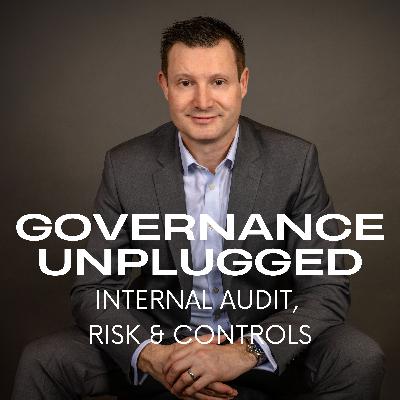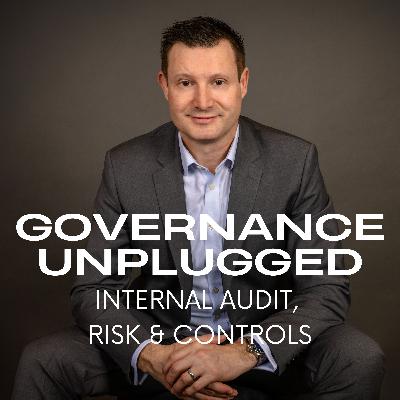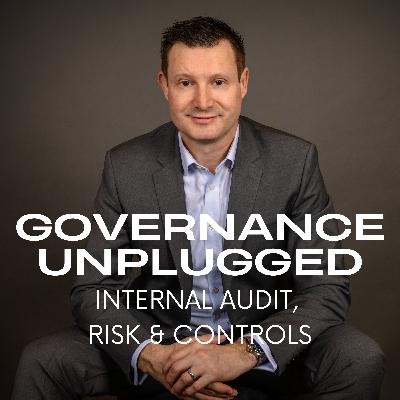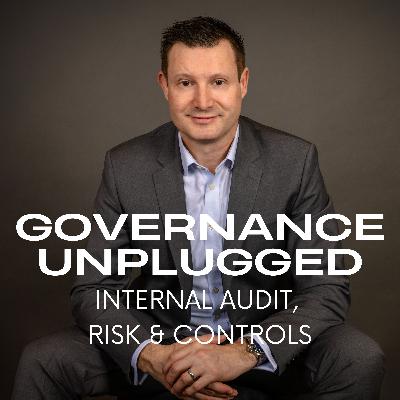Ep 12: From Trustless Code to Trusted Governance: Why Crypto Needs Boards and (Internal) Audit w/ Marieke Flament
Update: 2025-11-18
Description
Governance Unplugged – Episode 12
From Trustless Code to Trusted Governance: Why Crypto Needs Boards and (Internal) Audit
Guest: Marieke Flament: https://www.linkedin.com/in/mariekeflament/
Episode Summary
Crypto was built on “don’t trust people, trust the code.” But code is written, maintained, and exploited by people. In this episode, Thomas sits down with Marieke — a crypto-governance expert and industry leader — to explore the paradox at the heart of Web3: trustless architectures still require trusted structures. We unpack how Bitcoin and Ethereum took different paths, what DAOs have actually taught us about decision-making, why “trustless ≠ riskless,” and how boards, risk management, and internal audit can bring credibility, resilience, and scale to this fast-maturing space.
You’ll hear concrete examples (FTX, Terra/Luna), practical boardroom questions for M&A and partnership decisions, and a clear playbook for founders who want governance to be a growth multiplier, not a brake pedal.
What We Cover
• Bitcoin vs. Ethereum: two governance philosophies, one shared lesson
• DAOs: transparency, participation—and the human layer that never disappears
• “Trustless ≠ Riskless”: why accountability and oversight still matter
• What TradFi can learn from Web3 (traceability, on-chain analytics)
• What Web3 can learn from TradFi (boards, controls, audit discipline)
• The role of Internal Audit in crypto: from “after-the-fact” to “at-the-table”
• Crisis readiness: scenarios, controls, and board behaviour when things break
• Founder–Board dynamics: co-creation over compliance theatre
• A day-one governance checklist for crypto founders
Key Takeaways
• Governance is a capability, not a constraint. In crypto, it’s the difference between hype and scale.
• DAOs increase transparency, not infallibility. Human incentives and bias remain—just more visible.
• Internal Audit belongs at the table. Anticipate risks early, shape controls, and strengthen credibility.
• Convergence is here. TradFi gains traceability; Web3 gains board discipline and structured assurance.
• Trust is built before the storm. Scenario planning and control design are non-negotiable.
Memorable Lines
• “Trustless doesn’t mean riskless.”
• “Founders who treat boards as partners unlock real, sustainable growth.”
• “Governance isn’t the enemy of innovation—it’s a multiplier.”
From Trustless Code to Trusted Governance: Why Crypto Needs Boards and (Internal) Audit
Guest: Marieke Flament: https://www.linkedin.com/in/mariekeflament/
Episode Summary
Crypto was built on “don’t trust people, trust the code.” But code is written, maintained, and exploited by people. In this episode, Thomas sits down with Marieke — a crypto-governance expert and industry leader — to explore the paradox at the heart of Web3: trustless architectures still require trusted structures. We unpack how Bitcoin and Ethereum took different paths, what DAOs have actually taught us about decision-making, why “trustless ≠ riskless,” and how boards, risk management, and internal audit can bring credibility, resilience, and scale to this fast-maturing space.
You’ll hear concrete examples (FTX, Terra/Luna), practical boardroom questions for M&A and partnership decisions, and a clear playbook for founders who want governance to be a growth multiplier, not a brake pedal.
What We Cover
• Bitcoin vs. Ethereum: two governance philosophies, one shared lesson
• DAOs: transparency, participation—and the human layer that never disappears
• “Trustless ≠ Riskless”: why accountability and oversight still matter
• What TradFi can learn from Web3 (traceability, on-chain analytics)
• What Web3 can learn from TradFi (boards, controls, audit discipline)
• The role of Internal Audit in crypto: from “after-the-fact” to “at-the-table”
• Crisis readiness: scenarios, controls, and board behaviour when things break
• Founder–Board dynamics: co-creation over compliance theatre
• A day-one governance checklist for crypto founders
Key Takeaways
• Governance is a capability, not a constraint. In crypto, it’s the difference between hype and scale.
• DAOs increase transparency, not infallibility. Human incentives and bias remain—just more visible.
• Internal Audit belongs at the table. Anticipate risks early, shape controls, and strengthen credibility.
• Convergence is here. TradFi gains traceability; Web3 gains board discipline and structured assurance.
• Trust is built before the storm. Scenario planning and control design are non-negotiable.
Memorable Lines
• “Trustless doesn’t mean riskless.”
• “Founders who treat boards as partners unlock real, sustainable growth.”
• “Governance isn’t the enemy of innovation—it’s a multiplier.”
Comments
In Channel








